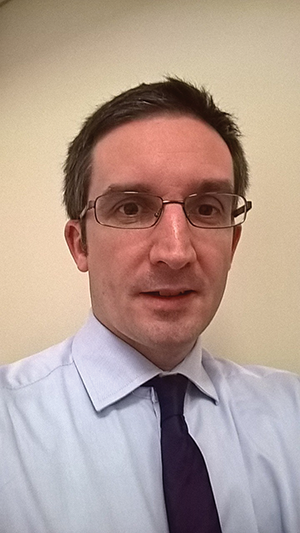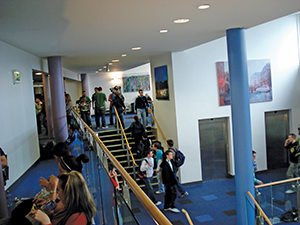Third level education reform

Dalton Tattan, Programme Manager, ETB/SOLAS Project Management Office of the Department of Education and Skills, talks to eolas magazine about the most significant structural reform of the education and training sector in the history of the State.
Through a series of decisions, the current Government decided to replace 33 vocational education committees (VECs) with 16 new entities, to be known as education and training boards (ETBs), and to establish SOLAS to replace FÁS. The responsibility for training provision transferred from SOLAS to ETBs “which aims to ensure an integrated delivery approach to Further Education and Training provision in Ireland.”
Tattan outlines the framework put in place to oversee the implementation of the change, and to support a strategic approach to the reform programme: “This was through the establishment of a project management office (PMO) which reports to a programme board. In recognising the need for a sector-wide strategic approach, with close engagement with the education sector, the department established the ETB/SOLAS Programme Board with members of the department’s senior management team and representatives from the sector. The Board actively supports and enables the sector to implement the reform programme. This support was further developed with the appointment of project managers to oversee individual elements of the programme.”
The Programme Board comprises the following:
Michael Moriarty, General Secretary, ETBI
David Leahy, CE Galway and Roscommon ETB
Paddy Lavelle, CE Dublin Dun Laoghaire ETB
Paul O’ Toole, Director General SOLAS
An approved programme plan incorporates a vision for the programme; how stakeholder engagement is managed; and identifies benefits arising from the programme.
“It was very clear from the outset that the aim of this project was to deliver reform on a grand scale,” explains Tattan. The vision of the ETB/SOLAS Reform Programme is to have ‘fit for purpose’ structures and systems which will enable ETBs and SOLAS to focus on their core missions; to ensure the integrated strategy, funding and delivery of further education and training; and to enable ETBs to do things better, both as education and training service providers and in the performance of their back office functions.”
In looking at the challenges in implementing the programme, Tattan observes: “The scale of change underway, and its multi-faceted character, gave rise to challenges and demanded a different way of working.” The challenge facing the team was to work with the sector to lead and manage this major programme of change in a diverse and complex sector while also introducing innovative cross-cutting public service reform initiatives, including the introduction of shared service and centre of excellence solutions. Based on the new method of funding from SOLAS the single funding organisation, funding is now based on performance by ETBs. One of the challenges for ETBs arose around ensure continuous improvement in programme development and continued focus on improving outcomes for learners.
 In recognising the challenges for ETBs based on the new funding structure, the PMO focused its attention to the process driven functions provided by ETBs and explored a shared method of delivery. The first initiative to be undertaken under the shared services umbrella was the payroll shared service project. Kevin Cullen, project manager for the Payroll Shared Services Projects says that the question to be considered at the outset was how best to manage the provision of a shared service solution to ETBs, to manage their payroll services.
In recognising the challenges for ETBs based on the new funding structure, the PMO focused its attention to the process driven functions provided by ETBs and explored a shared method of delivery. The first initiative to be undertaken under the shared services umbrella was the payroll shared service project. Kevin Cullen, project manager for the Payroll Shared Services Projects says that the question to be considered at the outset was how best to manage the provision of a shared service solution to ETBs, to manage their payroll services.
Consideration also had to be given to the interdependencies and how to ensure stakeholders were part of the decision-making process. How the payroll shared services project would be implemented in an effective and efficient way, with buy-in from the sector, was also a key consideration. To date substantial progress has been made with this project with the project team currently in the implementation phase.
Another back office function under consideration is the provision of financial services. Michael Morgan, project manager for the Finance Shared Services project, profiles the plans for the finance shared service project having completed the data collection and analysis phase of the project, the project team are now very focused on the delivery of a multi-functional shared services centre for the ETB sector. Both the finance and payroll shared services projects aim to remove the process driven workload of these functions.
Grainne Cullen, Programme Manager, Public Service Reform, sees the ETB/SOLAS programme as a change initiative within the overall reform programme being implemented by the Department of Education and Skills, and across the Education and Training Sector. It incorporates major structural change and the development of Shared Services supports so that ETBs can focus on how best to add value and to focus on their core mission of providing education and training in a very diverse sector.
In addition to the ETB/SOLAS Programme Board, all major projects under the Reform Programme have Project Steering Groups in place. This provides a strong governance structure for the projects and also includes representation at appropriate levels from the sector. This collaborative approach to governance ensures decision-making and accountability at appropriate times and levels in the process.
Nessa Doyle is project manager for the communications project. The deliverables include a Communications Management Plan, an established distinct identity for the PMO that is associated with all documentation issued by the office, publication of regular newsletters, participation in sectoral events and seminars, monthly reports to CEOs and senior managers, and regular meetings with CEOs and the department’s senior managers.
 Tattan summarises the successes of the work of the PMO stating “failing payroll systems were of immediate concern to ETBs, the work of the PMO has resulted in stabilised payrolls, and the merging of payroll and financial systems across the former VEC entities to achieve efficiencies, and improved control and reporting.” He continues: “these outcomes against the backdrop of constrained resources and increased demands is evidence of the commitment and dedication of everyone involved.” Progress has also been made in the development of a sector wide ICT strategy, improved ICT connectivity, and a legal services strategy for the sector.
Tattan summarises the successes of the work of the PMO stating “failing payroll systems were of immediate concern to ETBs, the work of the PMO has resulted in stabilised payrolls, and the merging of payroll and financial systems across the former VEC entities to achieve efficiencies, and improved control and reporting.” He continues: “these outcomes against the backdrop of constrained resources and increased demands is evidence of the commitment and dedication of everyone involved.” Progress has also been made in the development of a sector wide ICT strategy, improved ICT connectivity, and a legal services strategy for the sector.
Future
Looking to the future and the next phases for the programme, the programme plan sets out a dossier of projects; identifies known exclusions; recognises dependencies and linkages both within the programme and externally; declares risks and how they will be managed; and sets out a programme schedule. This plan will be the basis for the further advancement of the projects. Tattan concludes: “This approach represents an entirely new way of working for the department. Our relationship with ETBI, ETBs and SOLAS is a very positive and productive one. The experience is teaching us to work in a more joined-up way to realise a shared vision which will enable the sector to deliver better outcomes for learners.”





